Keynote Speakers
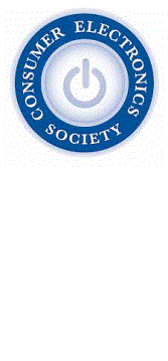
IEEE 2013 ICCE-Berlin Keynotes
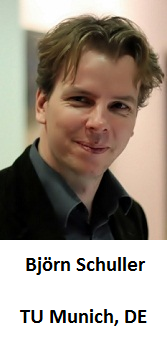 |
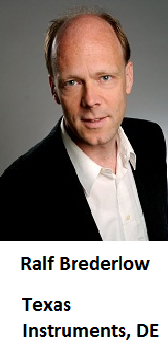 |
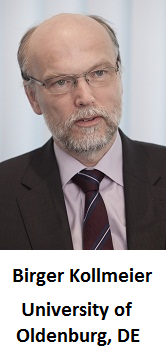 |
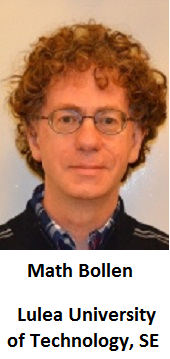 |
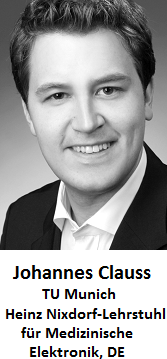 |
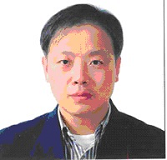 |
More keynotes coming soon: Taechan Kim, Samsung, KR
Björn Schuller
TU Munich, DELatest Advances in Machine Listening - Time to get excited
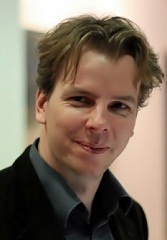
Abstract
Machine Listening or Computer Audition has recently made it to the broad consumer usage level in highly attractive services and particularly in mobile apps such as voice search or automatic song identification. In fact, such intelligent electronic audio analysis holds manifold further commercially interesting promises for our daily and future lives far beyond customers' current expectations. This keynote aims to give an insight into latest advances in this field and what is already or may become possible and crucial soon when machines start genuine hearing. An emphasis is put on ICCE 2013's focus on Ambient Assisted Living, and (Home) Healthcare. In fact, huge steps forward have been made in this fast-pacedly growing young field: For example, partially autonomous learning abilities of such systems allow for a broad range of novel applications. These include - just to name a few - speaker heart rate, skin conductance, intoxication, sleepiness, pathology, interest, emotion, personality, height and age estimation, besides smart music information retrieval, acoustic person identification by walking patterns, geo-position inference from audio or pleasantness analysis of acoustic ambience. Time to get excited about a rich multiplicity of new services or products exploiting these abilities.
Biography
Björn W. Schuller received his diploma, doctoral degree, and habilitation in electrical engineering and information technology from TUM/Germany, where he heads its Machine Intelligence and Signal Processing Group. He is co-affiliated with the Imperial College London/UK, co-founder and CEO of audEERING UG (limited), and permanent Visiting Professor at the Harbin Institute of Technology/China. Previously, he was a full professor at the University of Passau/Germany, Visiting Professor at the University of Geneva/Switzerland remaining an associate, with Joanneum Research in Graz/Austria remaining an expert consultant, guest lecturer at UNIVPM in Ancona/Italy, visiting researcher of NICTA in Sidney/Australia, and with the CNRS in Orsay/France. He (co-)authored 5 books and >340 technical contributions (h-index 34), and serves as associate and guest editor and general and program chair of several flagship journals and conferences. He was and is principal investigator of research projects funded by the European Commission, national research councils, and companies such as BMW, Continental, Daimler, Huawei, Siemens, and ToyotaRalf Brederlow
Texas Instruments, DENew Opportunities for Microelectronics in Medical Diagnosis
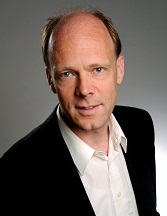
Abstract
Starting from today’s patient monitoring applications scenarios (blood glucose, heart rate, blood pressure monitoring) this talk will discuss recent trends for embedded microelectronics in healthcare applications. Based on several practical examples critical application needs like form factor, power consumption, configurability, and sensor resolution of medical systems will be analyzed. These considerations will be used to derive a vision on how to move health-care to the next level of usefulness for our aging society. It will be shown that recent developments in microelectronics enable health-care scenarios like continuous physiological data monitoring at a much higher level of comfort for the patient. Recent and still ongoing advances of the state of the art of integrated electronic systems will allow extraction of characteristic data pattern for early detection of diseases and with high value information for early therapy in the near future.
Biography
Ralf Brederlow has a Master degree in Physics and a PhD in Electrical Engineering from TU Berlin. He stated his career at Siemens and later Infineon Technologies as designer and technical project manager in different R&D organization from 1999 to 2006. There he solved analog and digital circuit design problems related to CMOS design for manufacturing, enhanced the security aspects of MCUs, and build sensor systems for bio-chemical applications. In 2006 he joined Texas Instrument in Freising responsible for design of analog, digital, and memory IP for TI’s ultra low power microcontroller product families. Since 2011 he is managing R&D and new technology development in the same organization. Ralf Brederlow has authored or co-authored 60 technical publications and holds 10 patents. He has been General Chair of International Electron Devices Meeting (IEDM) in 2008, and is currently the Vice Chair of the European Solid State Device and Circuit (ESSDERC / ESSCIRC) steering committee. He also acts as a member of Imager, MEMS, Medical and Health subcommittee of the International Solid State Circuits (ISSCC) and the medical technical program committee of ESSCIRC. Ralf is a Senior Member of IEEE.Birger Kollmeier
University of Oldenburg, DECocktail parties and binaural hearing aids: How Hearing technology gets us connected
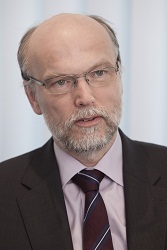
Abstract
Even though substantial progress has recently been made in the development of hearing aids and cochlea implants, the degree of auditory rehabilitation achieved is still limited. Special problems occur for hearing impaired listeners (approx. 18% of our population) in so-called cocktail party situations where they can hardly understand the desired speech in a mixture of voices and noise. But even in quiet the “distortion component” of hearing loss leads to a strong limitation in the perceived sound quality and speech intelligibility. In order to reach a substantial improvement, auditory models come into play – in a similar way as for MP3 audio coding. The modeling of the “effective” processing during the acquisition and processing of acoustic signals (such as music or speech) allows for the construction of “intelligent” hearing instruments that support speech intelligibility not only in “Cocktail party situations”. The lecture provides an overview of the activities in the cluster of excellence „Hearing4all“ that spans across biophysical principles in hearing impairment, clinical applications in auditory diagnostics and rehabilitation up to assistive listening devices in daily life. A focus of the talk is the model-based compensation of the “distortion component” and the binaural (i.e., listening with two ears ) compensation of the impaired “Cocktail party effect”. The advantage of such binaural algorithms will be demonstrated using sound examples. By using field tests with wearable prototype hearing aids, these new procedures are evaluated with patients. This work on binaural hearing aid has recently been awarded the German Presidents Award for Technology and Innovation (Deutscher Zukunftspreis 2012).
Biography
Birger Kollmeier received the Ph.D. degree in physics and the M.D./Ph.D. degree in medicine in Göttingen, Germany. He was Assistant Professor (1986–1992) and, subsequent to his ”Habilitation”, Associate Professor (1992–1993) at the Third Institute of Physics, Göttingen. Since 1993, he has been a Full Professor in experimental and applied physics at the University of Oldenburg, Head of the Medical Physics Group, Scientific Director of the Hörzentrum Oldenburg. Since 2000, he has been Speaker of the National Center of Excellence in biomedical engineering “hearing aid system technology (HörTech)” and since 2008 he is Head of the Fraunhofer Project Group Hearing, Speech and Audio Technology (HSA) and Chairmen of the Centre of Excellence “Hearing4all”. He supervised 50 Ph.D. dissertations and authored or co-authored more than 170 scientific papers and five books in various areas of hearing research, speech processing, auditory neuroscience, and audiology. Dr. Kollmeier was awarded several fellowships and scientific prizes, including the Alcatel-SEL Research Prize for technical communication, the International Award of the American Academy of Audiology and the German Presidents Award for Technology and Innovation in 2012. He is past-president of the German Audiological Society and Secretary-General of the European Federation of Audiological Societies.Math Bollen
Luleå University of Technology, Skellefteå, SEConsumer electronics and the power grid – what are they doing to each other?
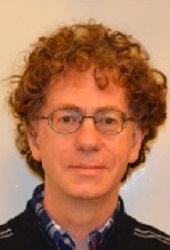
Abstract
The wide-scale use of consumer electronics requires the presence of a reliable electricity supply. But the supply should not only be reliable, the supply voltage should also be good enough. Insufficient voltage quality can result in incorrect operation of the equipment, deterioration of sound or image quality, or even premature failure. Consumer electronics is not always only the victim in this. The non-sinusoidal current taken by the equipment results in reduced voltage quality. The combined impact of all consumer electronics has a major impact on the grid. A whole range of standards and regulations exist to ensure so-called compatibility between the grid and equipment connected to it. But these are sometimes not sufficient and sometimes overly restrictive. In the end it is all a matter of costs and who has to pay. In this keynote presentation, the various interactions between consumer electronics and the power grid will be discussed. The emphasis will be on recent developments, positive as well as negative ones, in standardization as well as in research.
Biography
Math Bollen received the MSc and PhD degrees from Eindhoven University of Technology, Eindhoven, The Netherlands, in 1985 and 1989, respectively. Currently, he is R&D manager power systems at STRI AB, Gothenburg, Sweden (since 2003), and professor in electric power engineering at Luleå University of Technology, Skellefteå, Sweden (since 2004). Earlier he has among others been with the University of Manchester Institute of Science and Technology, UMIST, Manchester, U.K. (1993-1996), Chalmers University of Technology, Gothenburg, Sweden (1996-2003), and the Energy Markets Inspectorate, Eskilstuna, Sweden (2010-2012). Prof Bollen has published a few hundred technical papers and four text books: two on power quality (2000 and 2006), one on integration of distributed generation and a monograph on the smart grid (both in 2011). He is one of the leading researchers on power quality. Beyond power quality he has made contributions to a wide range of issues, including power-system protection, power-system reliability, integration of renewable electricity production and smart grids. Prof. Bollen is Fellow IEEE since 2005 for contributions to power quality. In 2009 he received the CIGRE technical committee award.Johannes Clauss
TU Munich -Heinz Nixdorf-Lehrstuhl für Medizinische Elektronik, DEElectronics for a better health
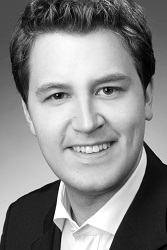
Abstract
Microelectronics has changed our daily lives substantially within the past 50 years. Countless electronic products in everyday life are used by today’s modern societies. While this trend is extremely present in the world of consumer electronics, these new possibilities have not been introduced yet, in the area of healthcare in the same pace. This keynote illuminates advances in diagnostics and telematic healthcare systems which assist patients and medical staff with chronic diseases like cardiovascular syndrome. The potential these systems have for a contribution to innovative improvements and better transparency in the healthcare system is shown. Further, safety aspects for devices that are rather designated for consumer use are discussed as they will play an important role for the spreading of consumer electronics devices into healthcare.
Biography
Johannes Clauss received his PhD degree in electrical engineering from Technical University Munich, Germany (Technische Universität München). He is currently doing his postdoctoral research at Heinz Nixdorf-Lehrstuhl für Medizinische Elektronik, TU-München. In 2006 he co-founded Sense Inside GmbH, a healthcare high-tech startup company which developed and launched an intelligent tooth splint for bruxism (teeth grinding) therapy. His current research interests are active implantable devices and portable, miniaturized medical devices.Taechan Kim
Samsung, KRImaging Technology Challenges for the Future
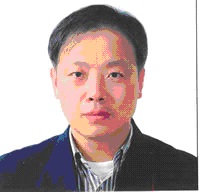
Abstract
The keynote will cover the latest trend in imaging technology. Today, imaging technologies have become integral in our daily lives. Digital imaging products including digital TVs, digital cameras, cell phones, bio-medical imaging devices and other applications such as surveillance, automotive, etc., have grown explosively. Hence imaging technology inside products such as TVs, smart phones and cameras have become integral part of these devices. It follows that the performance of the digital devices directly corresponds to the performance of the underlying imaging technology. The innovation in TV technology improved the resolution from HD to UD realm and the inclusion of dedicated gesture cameras allowed motion sensing. The camera used in smart phones have surpassed previous generation of digital cameras and incorporated advance imaging technology such as gesture sensors. Due to the advancement in APS, circuit and ISP technologies, premium imaging technologies are now included in conventional cameras such as DSC and DSLR cameras. Also, brand new type of products such as light-field cameras has provided new experience to the consumers. From smart phones and DTV, the application of imaging technology is expanding to the next generation of mobile and bio sensor technologies. By applying state of the art imaging technology to bio sensors, the medical examination devices are user friendly and reduced potential harm to patients. This speech will discuss history of imaging technology. The past and current status of image sensors will be explained and the future of image sensors will be proposed. Brief introduction will be given with hardware and software solutions inside Samsung. The upcoming opportunities and challenges in imaging technology, while identifying Samsung's solutions, will be introduced with their technical benefits and barriers. The three main challenges are high resolution, high speed and new experiences with images. Also, the latest feature set in imaging enhancing technology will be explored.